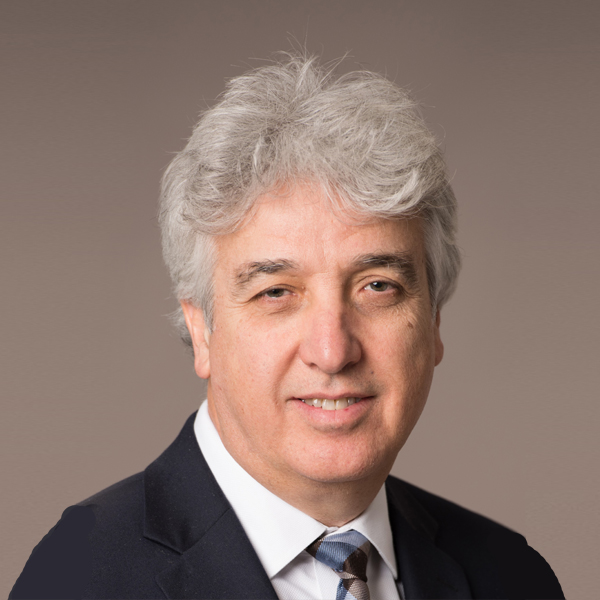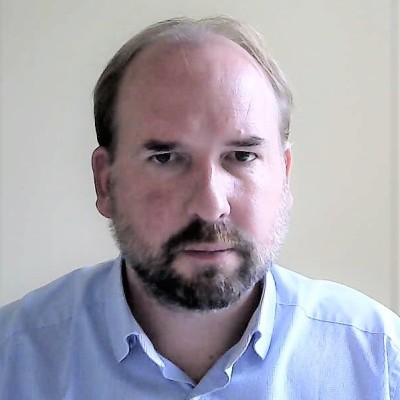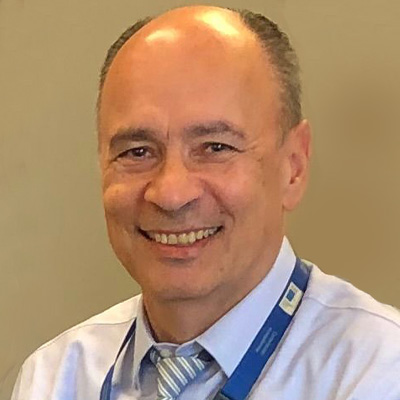Food Systems Podcast 63
In discussion with John Baffes, Petr Havlik and Tassos Haniotis
Tuesday, Nov 19, 2024
In this video episode, recorded in the studio immediately prior to the Markets outlook workshop, Mark Titterington talks with John Baffes, Senior Agriculture Economist, Development Economics Prospects Group, World Bank; Petr Havlik, Program Director, International Institute for Applied Systems (IIASA); and Tassos Haniotis, Special Advisor for Sustainable Productivity Adviser, Forum for the Future of Agriculture. They discuss the critical challenges and opportunities in agriculture and food markets. The conversation focuses on the need for updated policies to address shifting dynamics caused by global shocks such as the COVID-19 pandemic, geopolitical tensions, and climate change.
Here is a summary of the conversation.
Mark Titterington: Why do we need a discussion about agricultural markets now?
Tassos Haniotis: The world is rapidly changing, and the initial assumptions, targets and numbers made in the debate about about climate action, food security and reform of the CAP are no longer valid. There is an increasing gap between the initial assumptions and current reality. We have to close it as soon as possible by adjusting policies accordingly.
Mark Titterington: What are the main factors contributing to this gap?
Tassos Haniotis: In 2015 we had less price volatility but since then, we had Covid, energy tensions, geopolitical tensions, and the invasion of Ukraine. This turned things upside down, especially food inflation and the energy situation. Agriculture is at the centre of the changes, because of its dependence on energy and the geopolitical impacts on trade flows. We have to focus on land and soil management to see what type of adjustments we need.
Mark Titterington: The World Bank recently issued its latest commodity report – what does that find?
John Baffes: After 3-4 years of volatility, in the past year-and-a-half prices stabilized but they are high – 30-40% above pre-pandemic levels. Inflation has come down, but consumers still feel high prices at the supermarket. We also face risks: what will happen in the Middle East, the long-term pressures of climate change, and the “fuel versus food” debate.
Mark Titterington: Do we have a better understanding now of where we stand and the future direction?
John Baffes: We learned a lot from the pandemic in terms of moving food and goods, but while we have more knowledge about handling risks, we also have more risks.
Mark Titterington: Looking at climate change, how has our understanding of land use and its impact on climate change evolved?
Petr Havlik: Europe has set ambitious targets, and we know that agriculture, particularly forestry, can make a substantial contribution. There are big challenges. Countries like Germany and Finland that plan to rely heavily on carbon sinks are becoming net emitters.
Mark Titterington: Can agriculture be both a climate solution and mitigate its own impact?
Petr Havlik: Agriculture can play a significant role through carbon sequestration. However, farmers need clear guidelines for options they can realistically put in place.
Mark Titterington: Is European policy adapting quickly enough and in the right ways?
Tassos Haniotis: While there are positive signs, we have put too much emphasis on climate mitigation and not enough on adaptation. We need to make soil the priority. Productivity has to be sustainable; in Europe, Nobel-prize winning technologies have to be allowed; and in trade, the winners need to compensate the losers.
Petr Havlik: I also see positive signs like the new strategic priorities announced by the European Council. The challenge is to review policies to understand whether they support both adaptation and mitigation, or not.
John Baffes: We are seeing a backlash against globalisation. But trade remains very important because both population and incomes are growing. Yet many governments are looking inwards : “keep the food for yourself”.
Mark Titterington: What does the outcome of the U.S. election mean for trade and its role in building more resilient and sustainable agrifood systems?
Tassos Haniotis: We don’t yet know what will be done on the political level on trade, but I don’t think we’ll come out of this period smoothly. If you play around with trade, sooner or later you will pay a price.
Mark Titterington: With the Markets outlook workshop in mind, what are the key messages you want policymakers to consider?
John Baffes: When it comes to trade, don’t react to the news of the day. We have to address the long-term issues of climate change and inflationary pressures.
Petr Havlik: Policies have to take account of climate change – but also the profitability of the agricultural sector.
Tassos Haniotis: Markets don’t exist alone, and we have to combine economic aspects with environmental and social footprints.
If you have found this short summary interesting, there’s lots more to hear in the full 30-minute conversation. It is available now on iTunes, Podbean or Spotify or on this website.

John Baffes
John Baffes is Senior Economist at the World Bank’s Prospects Group where he leads the World Bank’s...see more

Petr Havlík
Petr Havlík joined IIASA in 2007 as a research scholar in the former Forestry Program and is...see more
His research interests are in integrated modeling of natural resources and ecosystems management for the development of transformations in food and bio-based sectors that enable satisfying human needs while ensuring the sustainable use of terrestrial and marine environments. In this context, he also led the development of the renowned IIASA Global Biosphere Management Model (GLOBIOM).
He coordinates the institute’s contributions to global land use related foresight and assessment activities with European Commission funded research projects, and with international agencies such as the Food and Agriculture Organization of the United Nations (FAO), the Organisation for Economic Co-operation and Development (OECD), and the World Bank. At the national level, Havlík coordinates the contribution to policies and regulatory processes in, among others, China, the European Union, Indonesia, and the USA. These projects generated funding for IIASA of about EUR 14 million.
While working at IIASA, he also held a three-year joint position with the International Livestock Research Institute (ILRI).
Havlík has been among the World’s most Highly Cited Researchers since 2018 and was ranked by Reuters as the sixth most influential climate scientist worldwide. His scientific excellence is also recognized by his appointment as a lead author for the Intergovernmental Panel on Climate Change (IPCC) Sixth Assessment Report (AR6), and the leading roles he plays in other international scientific networks, such as the Agricultural Model Intercomparison and Improvement Project (AgMIP).
Havlík received his PhD from the University of Montpellier 1 in France, and Mendel University in Brno, Czech Republic.

Tassos Haniotis
Tassos Haniotis recently retired, after a 33-year career in the Commission, as the Director of Strategy, Simplification and Policy...see more
